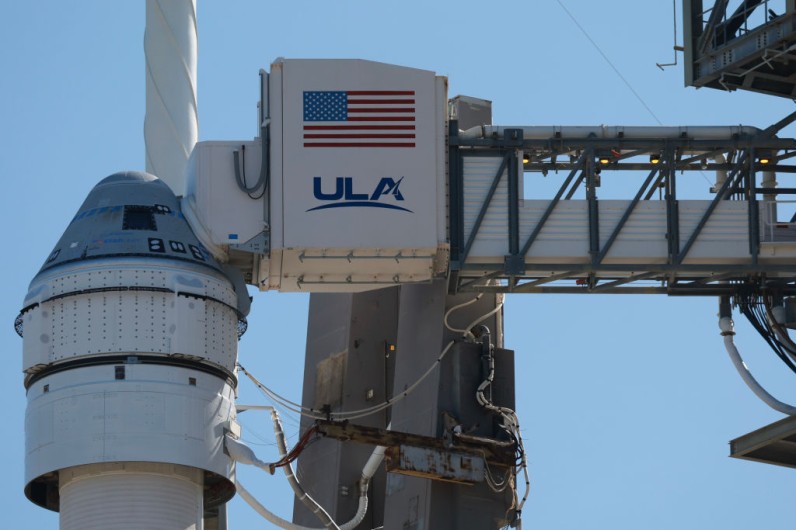
Boeing will make another attempt to launch its Starliner capsule named "Calypso" Saturday (June 1) at Cape Canaveral in Florida's Space Coast, after almost a month of delays.
USA Today reported that the beleaguered aerospace company's long-ridiculed space capsule is expected to launch at 12:25 Eastern Time (16:25 UTC) on top of a United Launch Alliance (ULA) Atlas V rocket.
The flight was originally scheduled for May 6 carrying NASA astronauts Barry Wilmore (commander) and Sunita Williams (pilot) on board, but was scrubbed due to an issue in an oxygen relief valve in the rocket's Centaur upper stage.
NASA Tackles Issues on Starliner Propulsion, ISS Urine Pump
One of the cargo payloads the Calypso would attempt to bring to space is a spare pump for the urine processor assembly aboard the International Space Station (ISS). Space.com reported that the replacement pump was supposed to be launched on the next Northrop Grumman Cygnus cargo mission in August, but the earlier-than-scheduled malfunction aboard prompted NASA to expedite the hardware at the expense of Wilmore's and Williams's personal luggage on board.
The urine processor aboard the ISS allows the orbiting laboratory to recycle most of the water aboard for drinking and other purposes.
VCPost reported last week that NASA and Boeing are confident of moving forward with its Starliner launch on Saturday after they claimed that the issues that impede the launch, such as a helium leak detected in plumbing used to pressurize Starliner's propulsion system, have been identified and fixed.
However, if the leak worsened during the flight, the helium pipe where the leak was detected would be isolated, CBS News reported, which meant that the capsule would need to depend on its reaction control system (RCS) thrusters to deorbit itself at the end of the mission.
Science Journalist Suggests NASA to Scrap Starliner Program
Ahead of the launch, BGR science, tech, and gaming writer Joshua Hawkins published a piece suggesting that NASA should consider discontinuing Boeing's Starliner program, citing the overwhelming success of its other human transportation provider, SpaceX.
Hawkins claimed that, in the time the company has been sorting its issues on the Starliner, as well as some of its headaches on its other production lines, such as its questionable aviation safety in its passenger jets, union woes with its firefighters, and even the involvement of its defense munitions in Israeli airstrikes in Rafah, Elon Musk's space company has already sent at least seven full crewed missions aboard its four Dragon capsules, as well as three other flights involving Axiom Space and several other crewed missions.
He argued that, while NASA was desperate to have another flight provider to be an alternative to SpaceX, Boeing filling that void was not "worth it."
Hawkins also thought that Boeing could still perfect the Strarliner, he was not expecting too much given the circumstances.
"For the time being ... I don't think I'll hold my breath," he said.







Join the Conversation